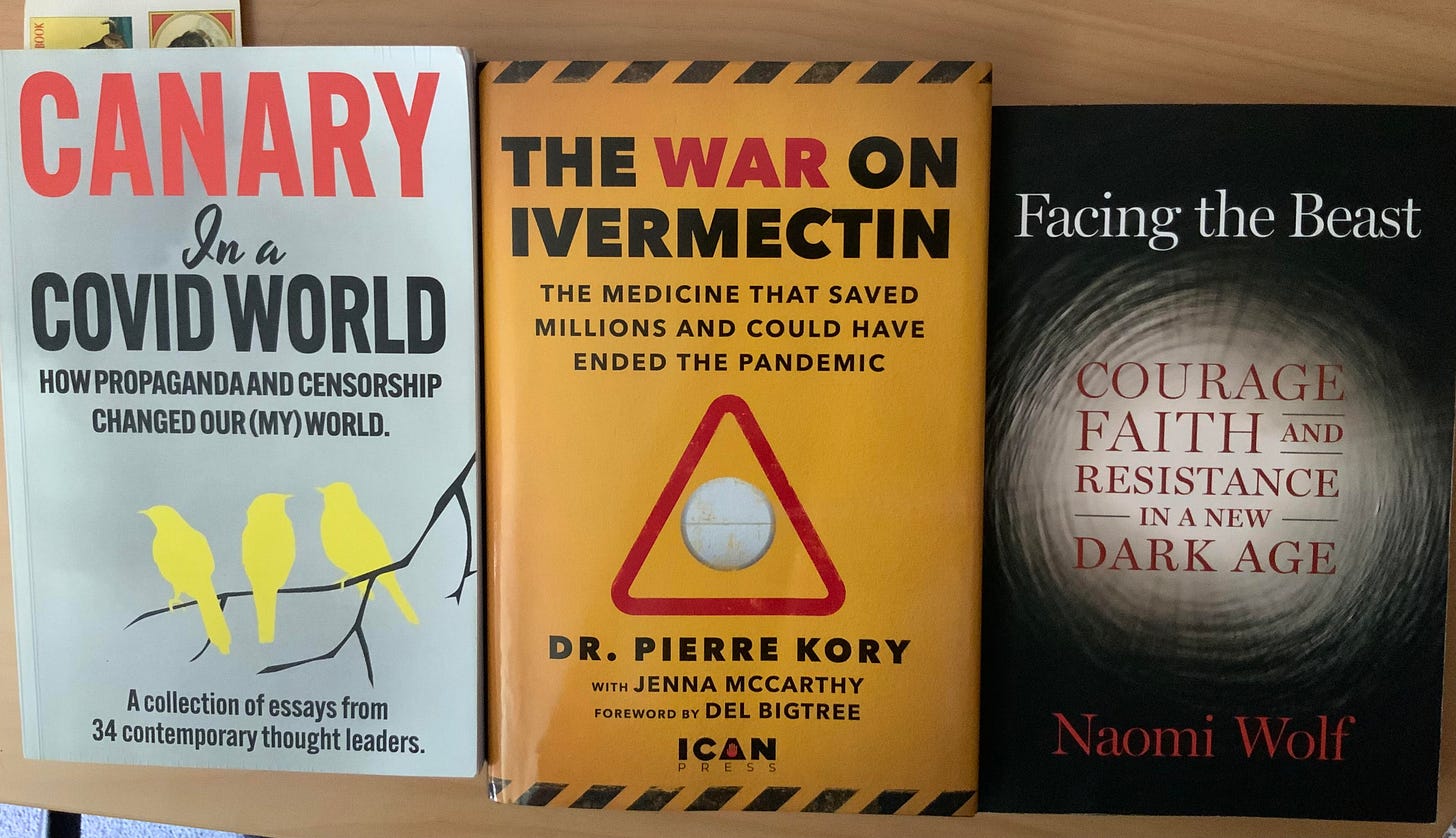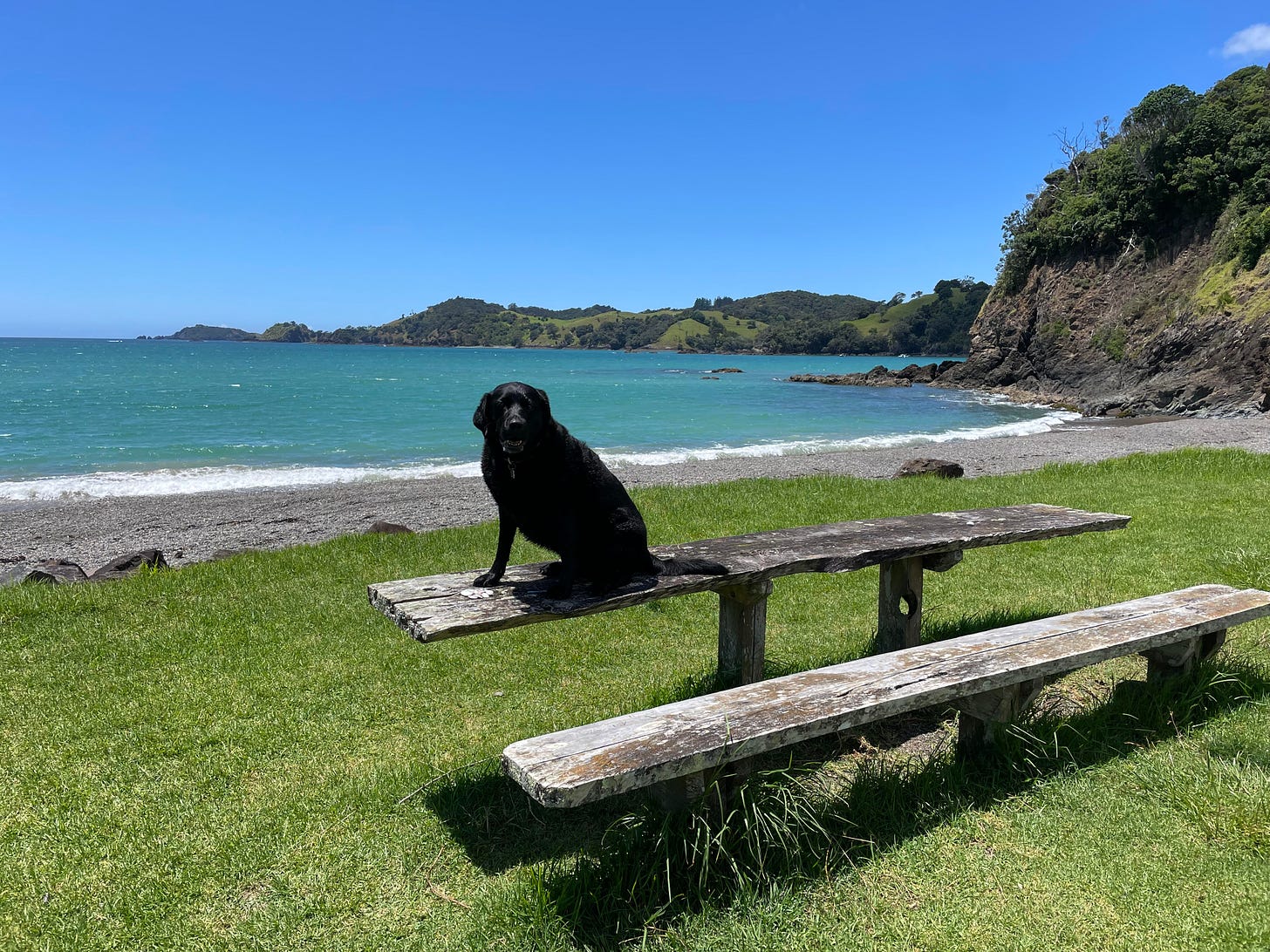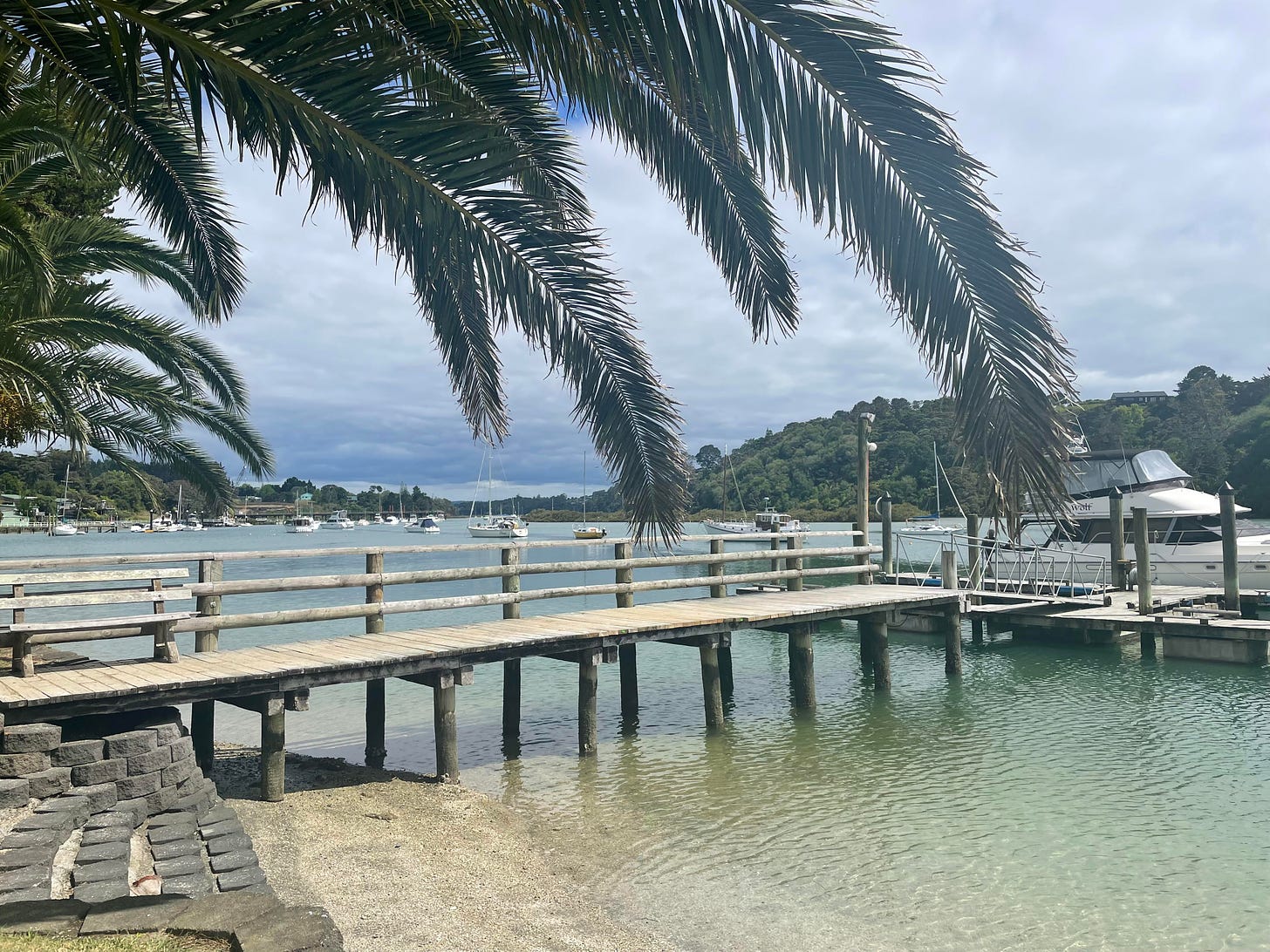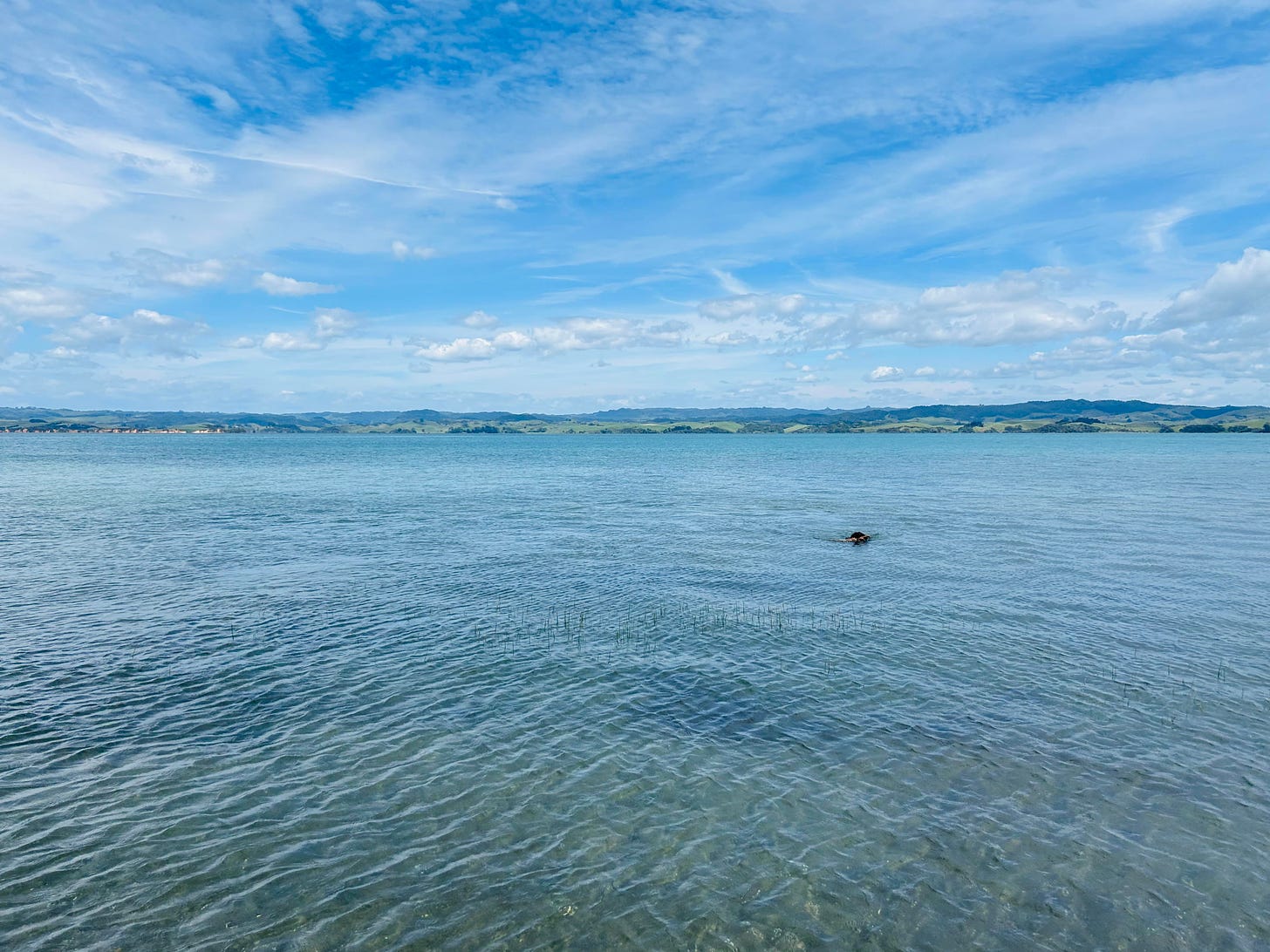Dissident Voices: Holiday Reading Reflections
Three books I recommend and one I definitely do not!
Christmas and New Year holiday season is very relaxed in New Zealand. I’ve been here ten years now, and although some people say “don’t you miss those cold, dark Winters’ evenings with mulled wine and carol concerts?” Nope. Give me a sunny, empty beach anytime. With my dog.
So I took with me on an escape to Northland, lots of reading, including some academic stuff. But the highlights were the three books in the image at the top of this post, which have all been published in the last few months.
First, the collected edition of 34 chapters in the “Canary in a Covid World: How propaganda and censorship changed our (my) world.” These chapters are excellently edited by C.H. Klotz - short, attention-grabbing and well-referenced where needed. I know how editing a book like this is like trying to herd cats, so I can’t say enough how appreciative I am of the commitment needed by the editor to accomplish this book.
Many of the ‘famous’ dissident voices are here. Yes, even the ones who are criticising each other. (urghhh) For this reason, this book would potentially be an excellent gift for someone who is just waking up to this fraud from the past four years: there’s something for everyone. The voices are all from very different perspectives, disciplines, countries and experiences - it makes for a very eclectic volume, with room for lots of discussion.
With contributions from Lord Sumption, to Dr Lapado, from Ed Dowd, Chris Chope MP to Prof Norman Fenton, the range of topics and writing styles (and referencing) is broad - and even if you don’t consider someone likeable, a short 3000 chapter can either be skipped over, or more likely, will offer some valuable insights into that author’s covid-era experiences that may surprise you.
The highlight for me, apart from the international nature of the collection, was the chapter by Dr Joseph Fraiman, lead author of the infamous 2022 ‘Doshi’ paper in Vaccine, about the Pfizer adverse events signals. He very thoughtfully writes in a non-academic tone about his own journey from the shame of self-censorship to strong ‘dissident voice’ - and encourages other academics to also be brave.
I liked the way Prof Denis Rancourt’s ‘controversial’ paper “There was no pandemic…” was left to the final section in the book. Definitely provides some food for thought when it follows the other perspectives.
Next is American/British Feminist author, Naomi Wolf’s latest book “Facing the Beast: courage, faith and resistance in a new dark age".” Naomi also contributed to the above ‘Canary’ book, and anyone who has also already read her previous book “The Bodies of Others” will be familiar with this material of her experiences during the covid era in the USA and Britain. Hence I did find myself skipping some pages here and there, as this seemed like an ‘advanced’ version of previous writing. Here, she develops her ideas more fully, she brings together many different writings, including, my personal favourite, Mathias Desmet’s The Psychology of Totalitarianism, along with that author’s source material (Hannah Arendt) and more.
You can read my previous post about my readings, that includes Mathias’ book (and Naomi’s previous book) here:
I liked this latest book of Naomi’s enormously because it is more carefully crafted than others, because it is angry but angry with intelligence. She writes with com/passion about her Feminist work, her faith, her love of nature and her family and pets, her love of entertaining and socialising and how the covid era has, like it has for so many of us, ‘changed everything’. But not all for the worst. We have hope, a new beginning with new opportunities ahead.
This woman is a formidable and her voice is a powerful force for positive change. A truly inspirational (if too short) book.
Next, Dr Pierre Kory’s book “The War on Ivermectin”. You may have already seen the short doco (12 mins) about this book, which I recommend watching more than once - there is so much info within it.
Pierre’s book is an in-depth explanation of his personal journey as a clinician of realising just how corrupt and broken academia really is. The Corporate Playbook of censorship and propaganda and the revolving door of regulatory capture is spelled out by Pierre, in some great examples and anecdotes throughout this book - it’s more than just Ivermectin, this is about the whole of medicine. As someone who perhaps saw this about ten years ago, it is a book to nod along to, with a repeated ‘yup’! But it is written in an approachable style and language that I think anyone outside of academia would also be able to easily engage with and understand. Pierre comes across as a very likeable guy, who refers to his old self as ‘old Pierre’ with a sense of shame and pity as he acknowledges how naive he was (how we all were) BC (Before Covid).
There are useful anecdotes and a thorough timeline of events from his American perspective. Personally, I would have preferred it if the references had been written in a more formal format - hyperlinks are not much good when you’re reading the hardcopy version! Overall, this would also be an excellent book to lend/give someone who is on the clinical side of the debate and is curious about the context of the Censorship-Industrial-Complex, including the stigma and labelling of this world-famous ‘horse-dewormer’ that was actually a Nobel-Prize-winning generic human medicine. Incidentally, its worth mentioning how I’ve written before how Ivermectin is also a central part of Legatum’s End Fund’s “Mass Drug Administration” programmes in Africa (more on that another day).
Finally, the book which I did not finish reading, literally because it was too boring and life is far too short (especially at the moment) to spend reading something that is not providing any insight or value. But, before I tell you what book I’m talking about, let me say that what we are living through should not be trivialised in any way, and especially the impact on our mental health and well-being. When an author wants to share with the world what is in their innermost thoughts, then I respect that, as all readers should. And I know also, that simply the act of writing down those thoughts, getting it all ‘out there’, can be, in itself, extremely cathartic.
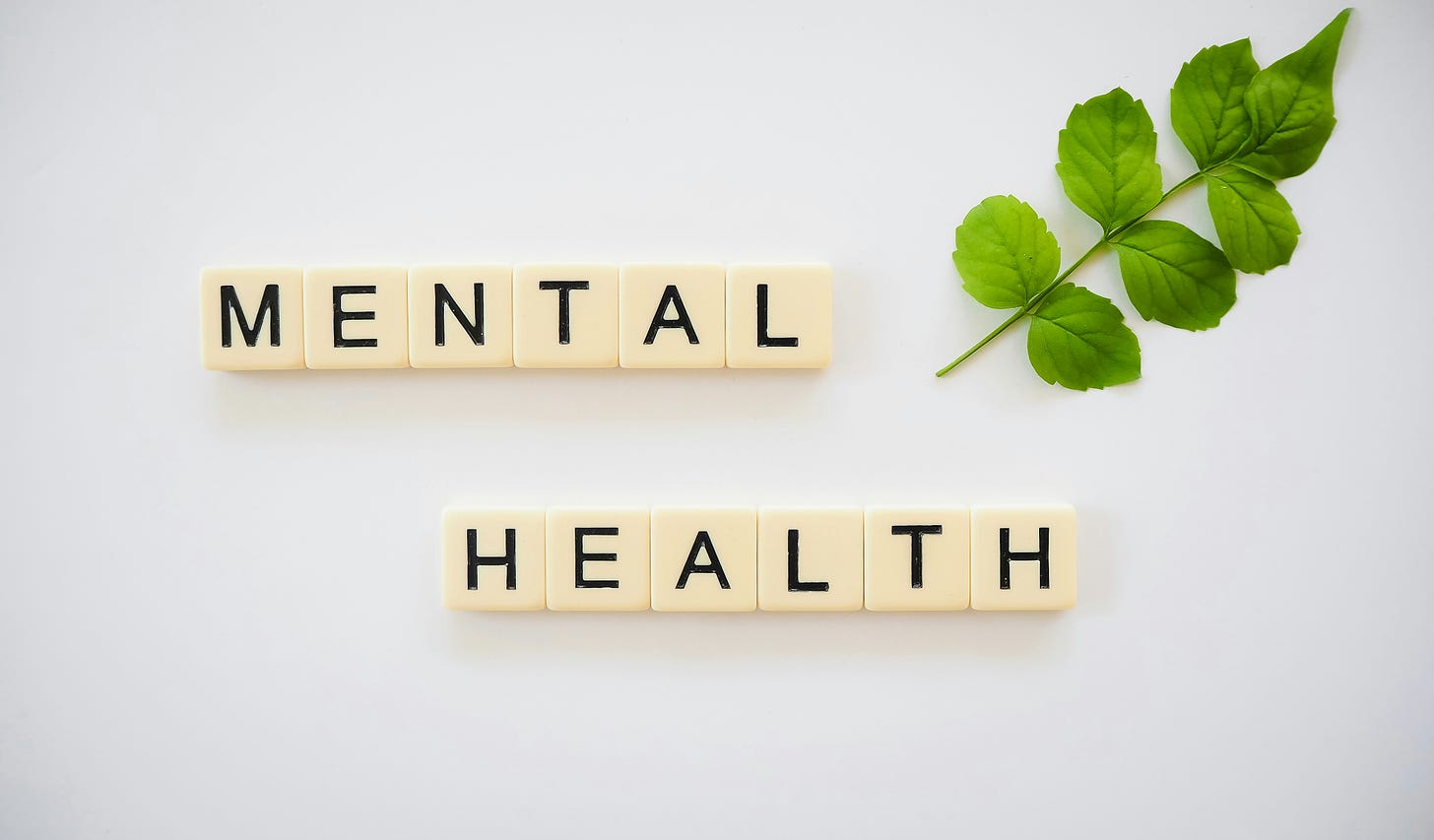
But sometimes those kinds of writings should be burned.
So the book I’m talking about is Australian Freedom Fighter Monica Smit’s “Cell 22: from party girl to political prisoner.” Which is only available on her website. As a prominent dissident voice in the ‘Reignite Democracy’ and with the title of the book promising an insight into what actually happened during the Melbourne protests against the 'No Jab, No Job’ and lockdown policies, this promised to be an interesting read. Battleground Melbourne is a must-watch doco about that crazy time, where police, unbelievably, battered and opened fired on their own peaceful citizens and activists like Monica were arrested just for speaking out about the harmful covid restriction. Topher Field wrote the Foreword for Monica’s book, and also produced and directed the doco mentioned above, so yes, my expectation was above average.
However, disappointingly, Monica’s book fell far short of what was promised. Rather than providing insight into the context of her arrest, others on her team, and what challenges they all had to overcome, this read more like an poorly-edited teenager’s self-absorbed journal. It wasn’t even Adrian Mole funny! Of course, I was very sad to read about Monica’s personal struggles with her weight, her seeming unhealthy (controlling?) obsession with fasting during weeks of her prison time (which can’t have done her much good tbh), and how she was a victim of rape as a youngster. Dreadful events. These are all terrible, traumatic difficulties, replete with emotional complexities and personal angst. She has my sympathies. Undoubtedly Monica’s family and partner help her to cope with these issues. But really, should this book have been an outlet for what seems like an insecure young woman with emotional health needs? This is far from any type of ‘self-help’ book or inspiration story (that she apparently wants it to be).
Personal trauma is NOT the subject of a book about a covid-era peaceful activist. I’m not saying it can’t be a part of the story - we all have our individual motives and learnings to add to our shared understanding of what has happened. But this rambling of Monica’s went on and on. After a while, the repeated phrases begin to grate - why does she feel it necessary to explain that she is writing this book in prison, despite not yet having ‘lived’ the experience fully that she is trying to write about? Why doesn’t she look to other activists for guidance or even mention any of her colleagues in this fight? Boyfriend troubles and eating disorders, urgh, I’m afraid I got halfway through and found the book so devoid of authenticity, proper editing or meaning, I left it in the ‘sharing shelf’ at the campsite we were at. Maybe someone will learn something from it - not sure what, though… I was expected something like Tamara Lich’s “Hold the Line”, but this was nothing like it. Good luck Monica, I hope your next book is the one that your followers actually want to read, that won’t be me!
So, three out of four ain’t bad. And lots more books to read now, in the months ahead.
Thanks for reading! Please let me know your thoughts, especially any books you have read recently and would like to share!




